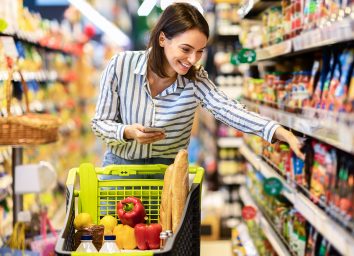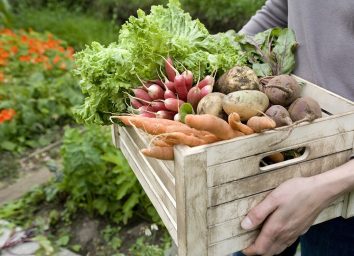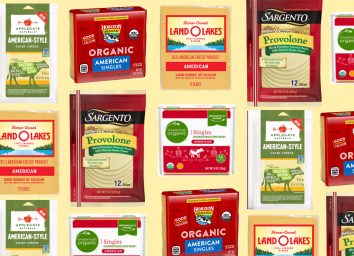10 Things You Won't See at Farmers' Markets This Year
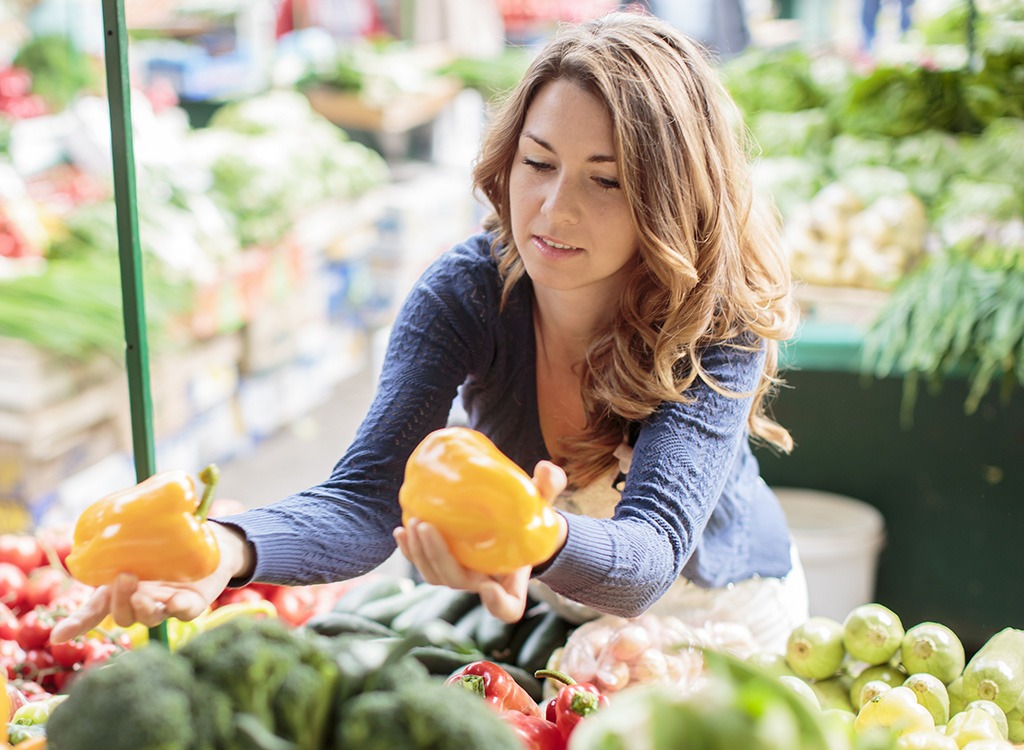
The farmers' market season is upon us, and you may be wondering what kinds of changes you can expect to see due to the coronavirus restrictions. Farmers' markets have been deemed essential businesses during the pandemic and will continue operating this year, but with stricter health precautions in place.
Shoppers have expressed they currently feel safer shopping at farmers' markets than at grocery stores, and there may be some truth to that. Due to their open-air nature, and the fact that the produce exchanged fewer hands to get to you, farmers' markets may indeed be your best bet for a safe shopping trip. So get out on a sunny day and support your local farmers at a safe distance.
Here are some things you likely won't see at the farmers' market this season, so prepare accordingly. Sign up for our newsletter to get the latest foods news delivered straight to your inbox.
Multiple entrances

You can usually walk up to a farmers' market from any direction at enter the shopping crowd at any point. But this summer, entrances to open-markets will likely be limited to one single entryway in an attempt to better control the number of shoppers perusing the market at one time. Read about similar changes taking place at Walmart.
Families shopping together
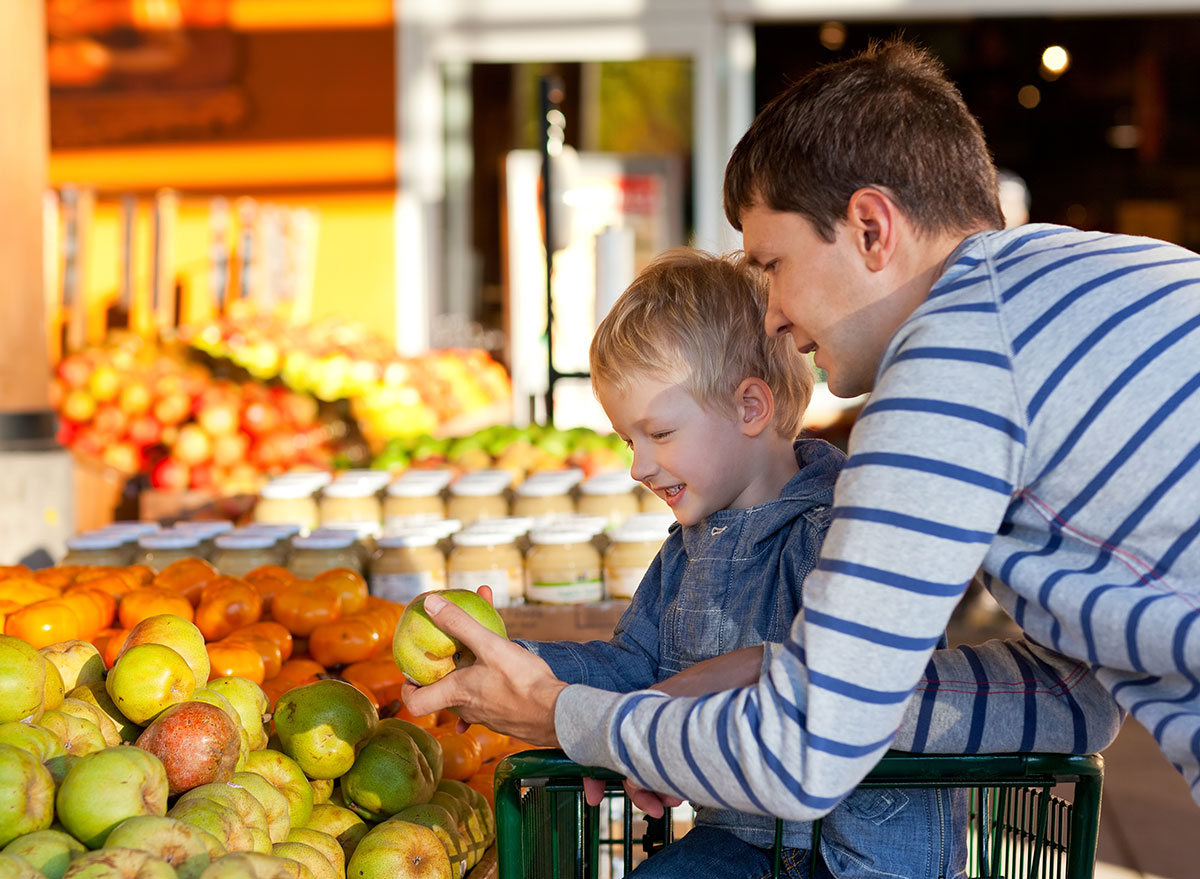
Farmers' markets across the country are advising shoppers to come in smallest groups possible, and ideally alone. If buying your weekly load of produce used to be a fun family activity for you and your loved ones, you may not be able to enjoy the social aspect of farmers' markets this season. However, here are some fun recipes to make as a family.
Shoppers touching produce
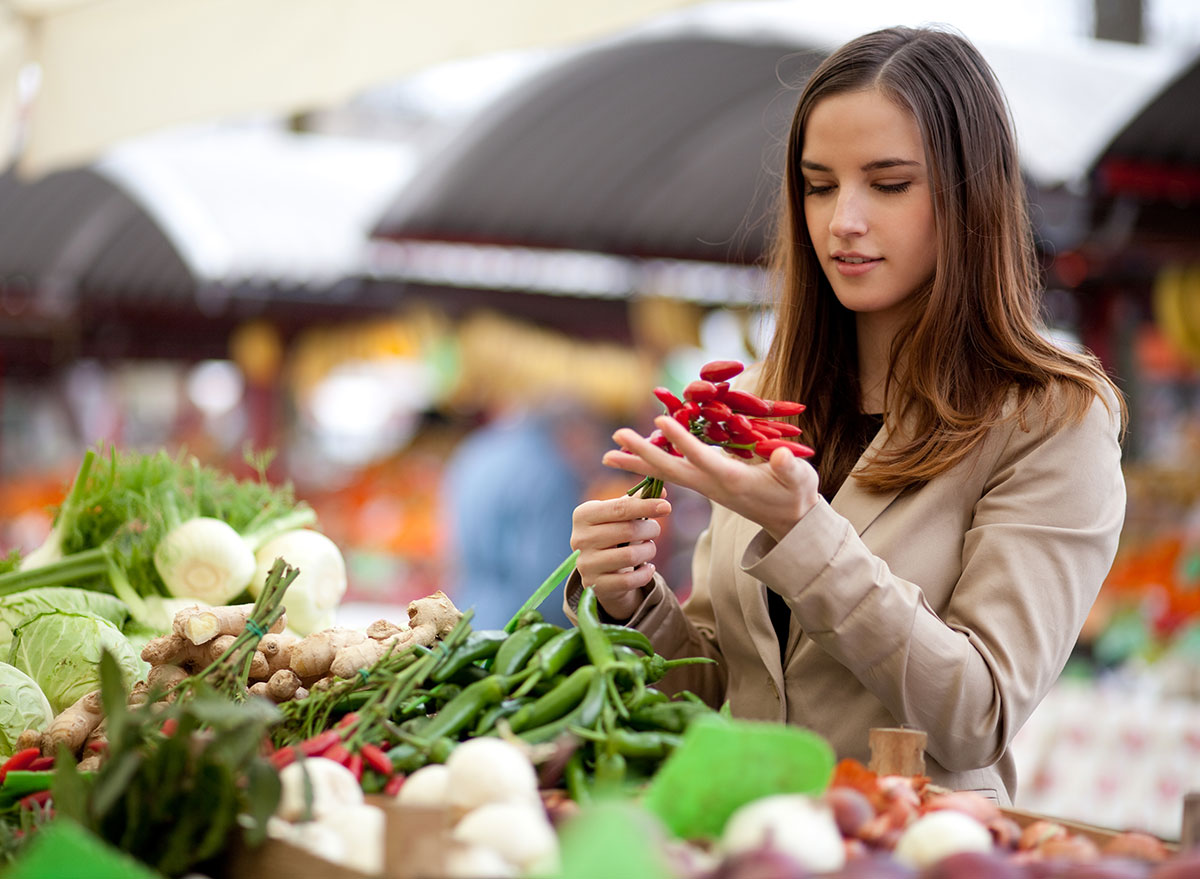
One of the best parts about shopping at a farmers' market is the opportunity to choose your own fruits and veggies based on touch and smell. However, most farmers' markets have implemented strict no-touch policies when it comes to produce, and the only people that are allowed to handle it are the vendors (who usually wear gloves). Be prepared to settle for pointing at the head of lettuce or a tomato you want from a distance. Here's how you may be infecting others without knowing it.
Shoppers without masks
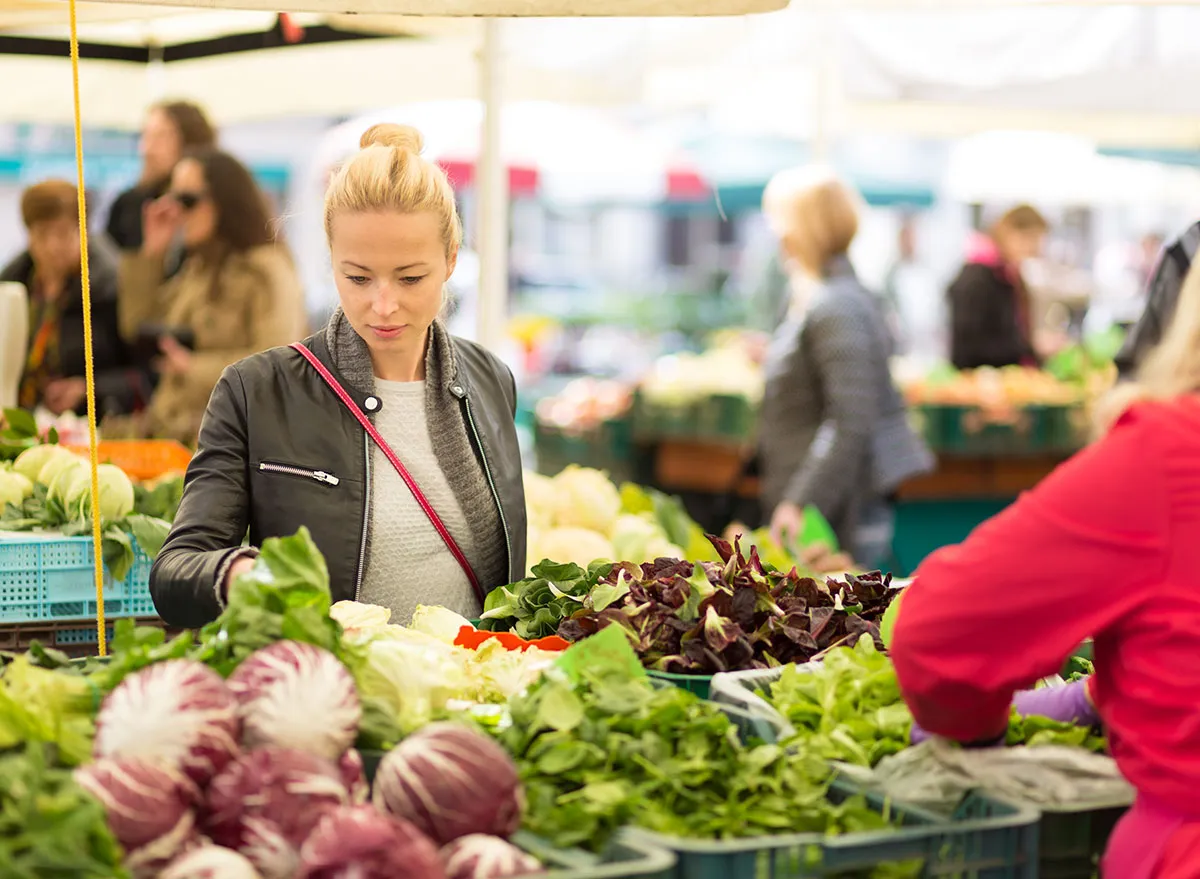
Most farmers' markets are going to be strict with enforcing mask-wearing policies inside the market. Some may not even allow you to enter the premises without a face covering. All vendors are required to wear face masks, too. Make sure you're wearing your face mask properly with these tips.
The same person packing your produce and accepting payment
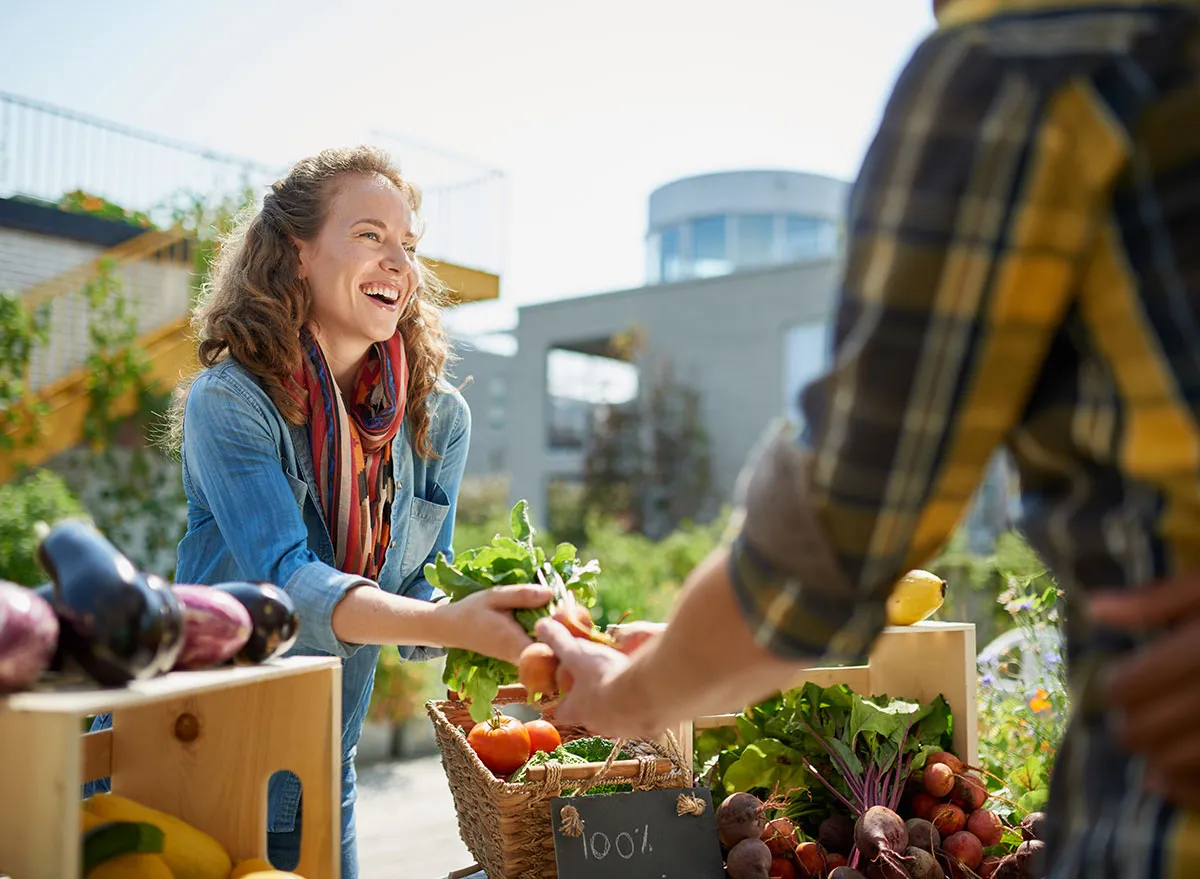
Some market vendors are dividing their staff up into stations, where one person will only handle and pack up your produce, while another will only handle payments. This is a change that will help with speed and efficiency of operation, but also prevent cross-contamination of your food. Here are some changes you'll see at your local restaurants.
Eating or drinking on premises
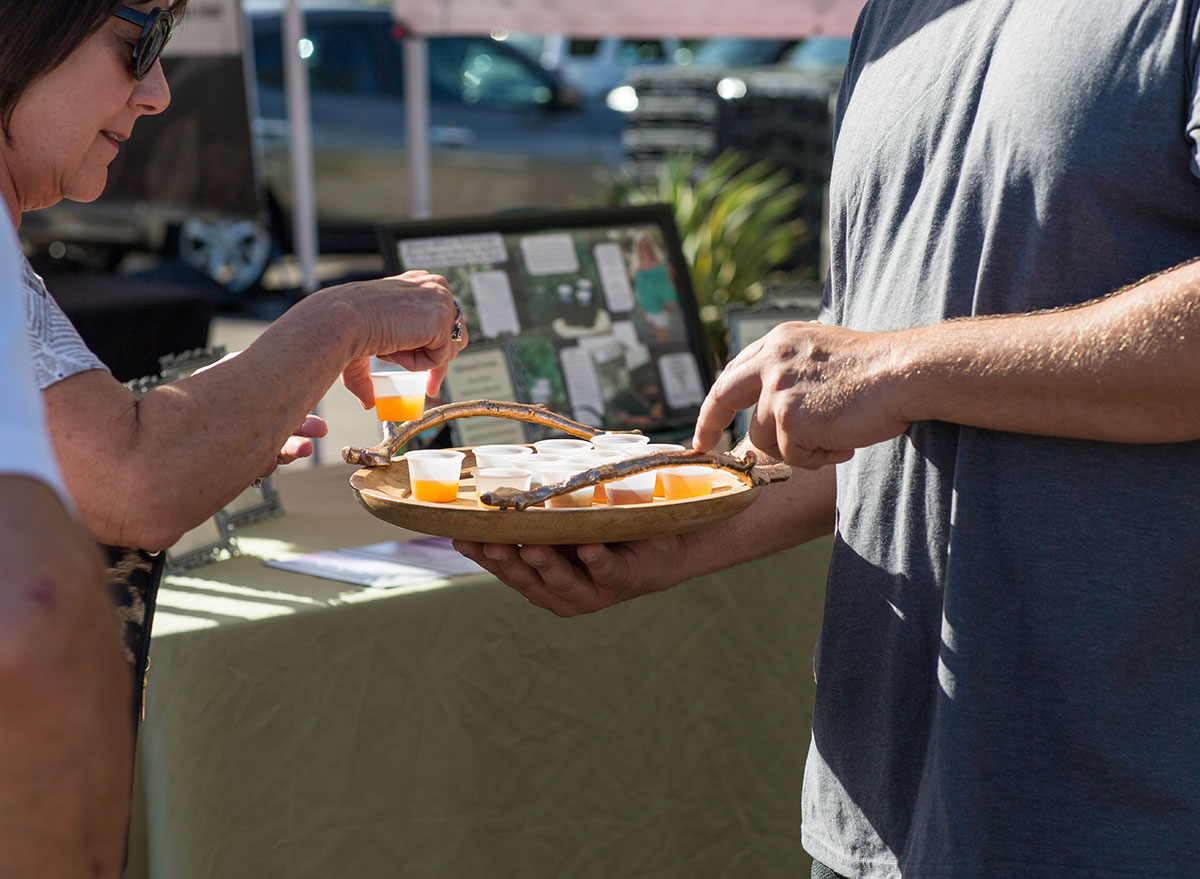
You won't see free food samples being offered by various vendors this season. In fact, all prepared food and beverage services will be suspended for the time being. You likely won't be allowed to bring any food or drinks into the market either. Here are some popular free food samples you may never see again.
Pets
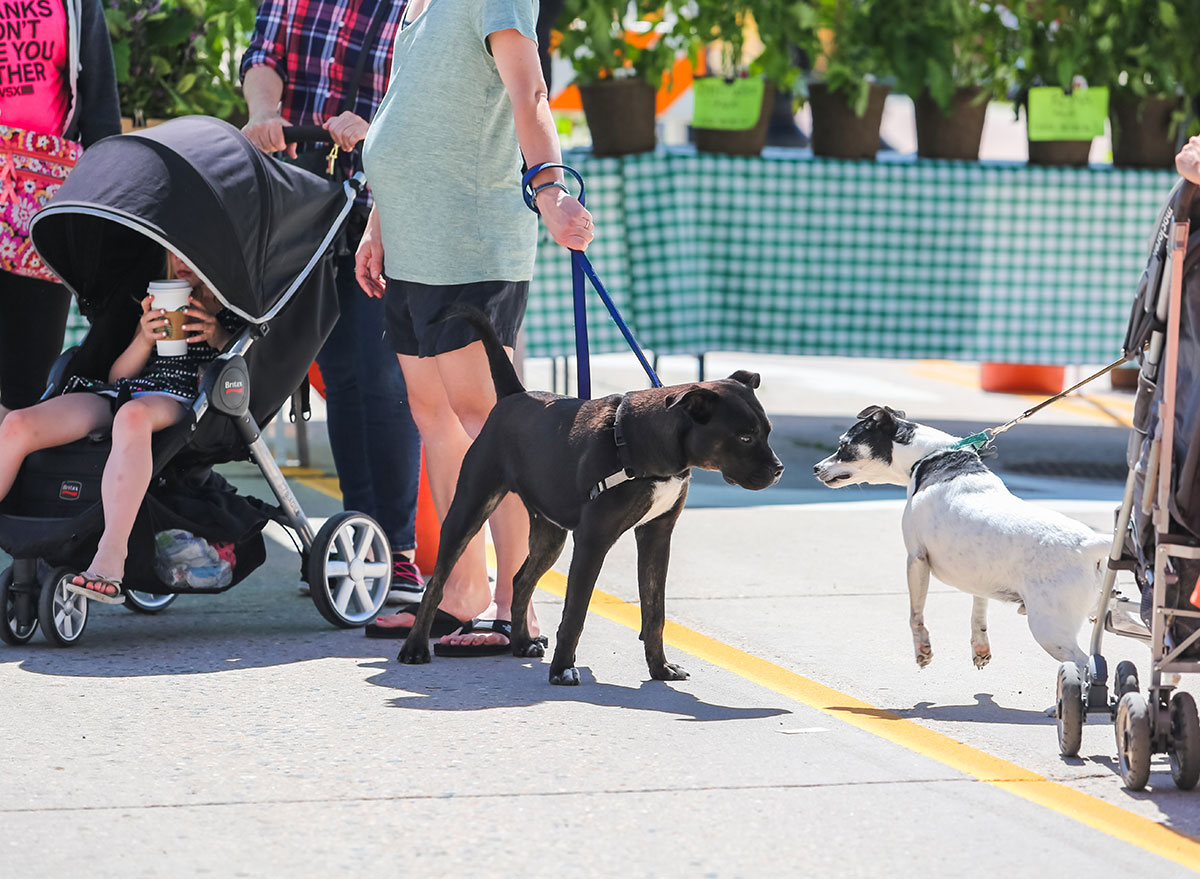
Unfortunately, Fido will have to sit this one out. Much like the rest of your family, your pup probably enjoys a nice social outing to the farmers' market, but this season, you won't be allowed to bring him on premises. Here's how to keep your dog healthy during quarantine.
Live music

Sorry but right now, you should be using your local farmers' market as an essential service to buy food, rather than an opportunity to socialize. All entertainment, including live music, will be prohibited at farmers' markets this season. Here are some similar changes taking place at state fairs this season.
Public restrooms and seating areas
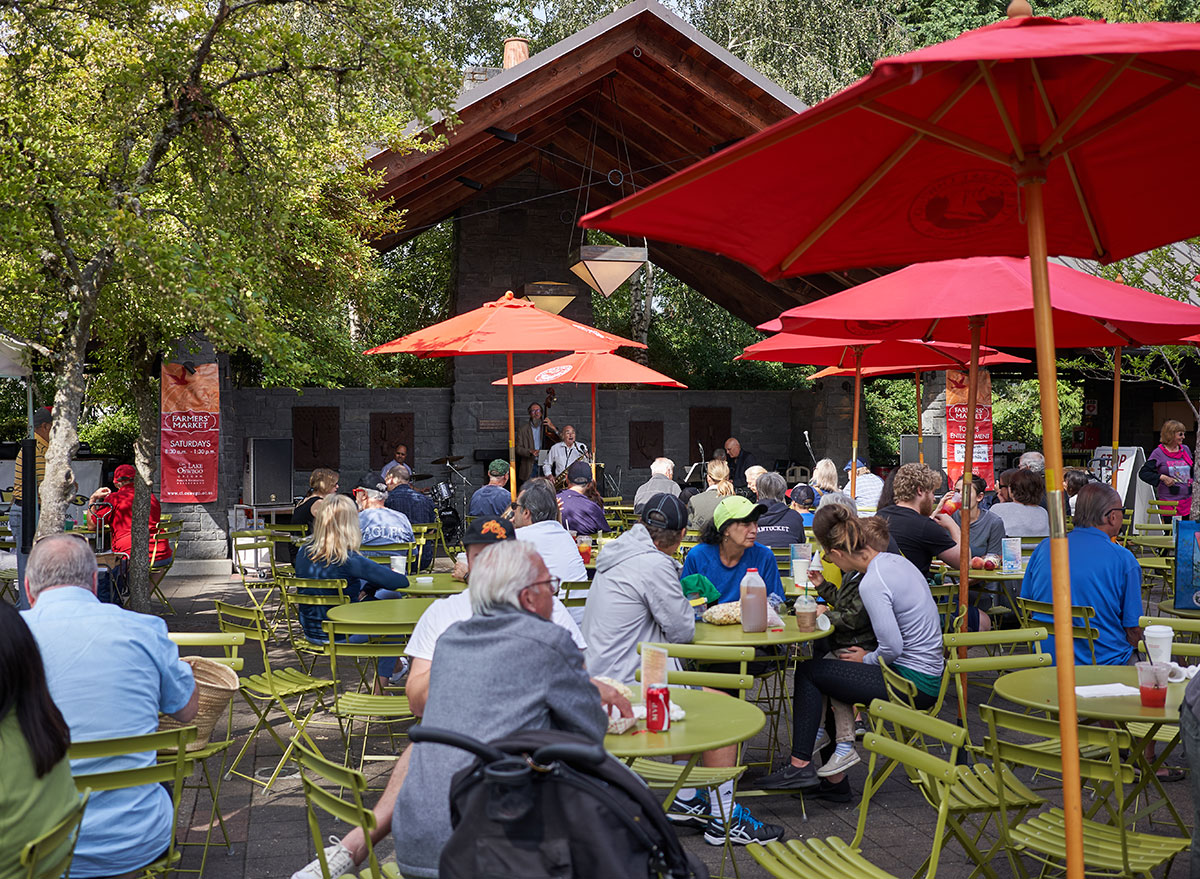
In order to reduce crowds and with them the potential for infection, farmers' markets will be eliminating all communal seating areas and bathrooms. This goes hand-in-hand with the changes that discourage socializing or lingering too long at the market. Here's a list of places you're most likely to catch coronavirus.
Cash transactions
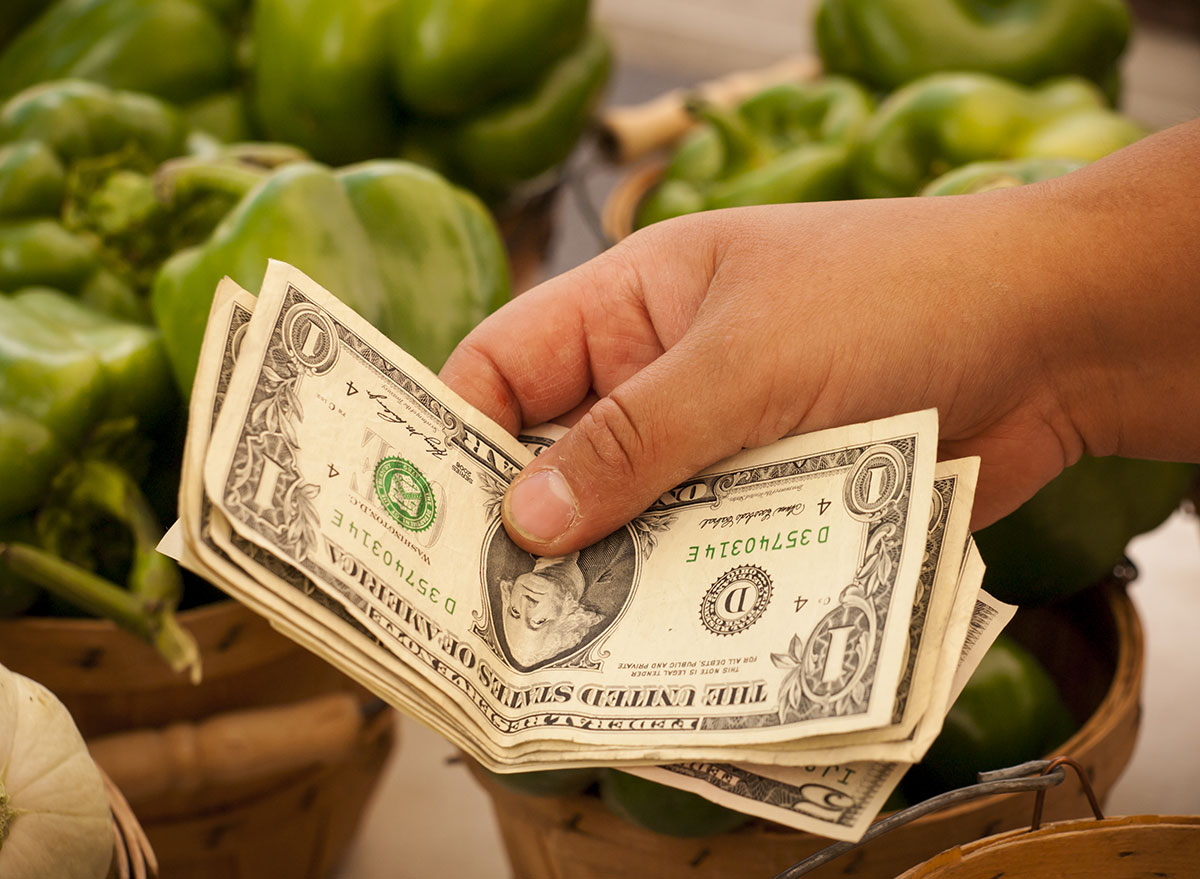
Although cash is usually the preferred method of payment among market vendors, many of them will be switching to contactless payment via credit card of phone apps this season. You'll be able to simply scan your credit card or phone when you're ready to pay. To further discourage browsing and cash transactions, some markets have enabled online orders which can be placed ahead of time. Visit your local market's website to find out if this option is available and find a list of participating vendors. Here is a list of chain restaurants going cashless during the pandemic.
